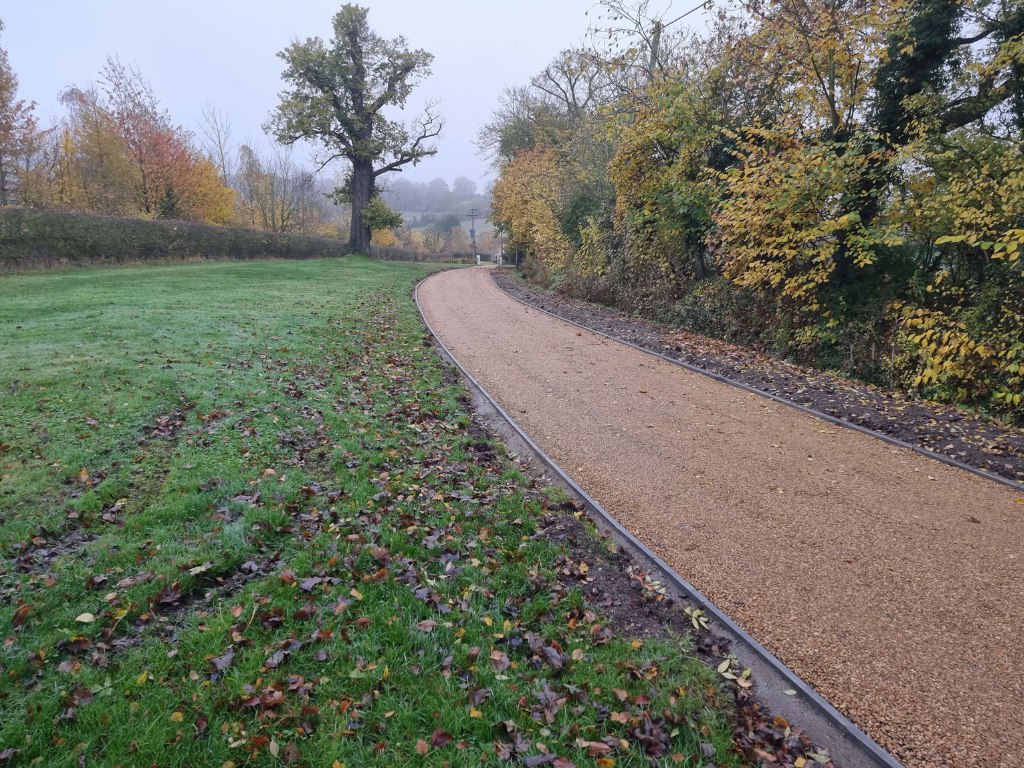Common Installation Mistakes to Avoid with Block Paving
Block paving is one of the most popular choices for driveways, patios, and paths across the UK — and for good reason. It’s attractive, durable, and highly versatile. However, the quality of the finished surface depends heavily on the installation process. When installed correctly, block paving can last for decades, but when done poorly, it can lead to uneven surfaces, drainage issues, and costly repairs. At Dover Driveways & Surfacing, we’ve seen how proper preparation and workmanship make all the difference for homeowners in Dover and across Kent.
Why Proper Installation Matters
Block paving isn’t simply about laying bricks in a pattern; it’s a technical process that requires precision and planning. Each layer — from the sub-base to the jointing sand — plays a critical role in ensuring stability and longevity. A single oversight can affect the performance of the entire surface.
Homeowners should be aware of common mistakes made during installation, as avoiding them ensures that your new driveway remains strong, level, and visually appealing for many years to come.
Mistake 1: Inadequate Ground Preparation
One of the most common and costly mistakes is failing to properly prepare the ground before laying the blocks. The sub-base must be excavated to the correct depth and compacted thoroughly to provide a stable foundation. If this step is skipped or rushed, the surface will begin to sink and shift under pressure.
Professional installers use high-quality aggregates and ensure compaction is consistent across the entire area. Without this, the driveway is vulnerable to movement, puddling, and cracking.
Mistake 2: Ignoring Drainage Requirements
Poor drainage is a major issue in many DIY block paving installations. Without appropriate falls and channels, rainwater can collect on the surface, leading to pooling, erosion, and even structural damage over time.
Properly designed block paving should direct water away from buildings and allow it to drain efficiently through or around the paving. At Dover Driveways & Surfacing, drainage is a key consideration in every project we undertake, ensuring that the finished surface performs well in all weather conditions.
Mistake 3: Using the Wrong Base Materials
The base layer is crucial for supporting the weight of vehicles and preventing the surface from sinking. Using soft or poorly graded materials such as fine sand or dirt instead of MOT Type 1 aggregate can cause the entire driveway to become unstable.
A well-compacted sub-base provides the strength needed to handle daily use, and it’s essential to get this right from the start to avoid future problems.
Mistake 4: Poor Edge Restraints
Edge restraints are vital in maintaining the structure and alignment of block paving. Without secure edging, the blocks can shift outward under the pressure of vehicle movement, leading to uneven edges and gaps.
Professional installers use solid edging solutions such as concrete kerbs or haunching to ensure the blocks stay firmly in place and the driveway retains its shape over time.
Mistake 5: Incorrect Laying Patterns
Block paving can be laid in various designs — herringbone, basket weave, or stretcher bond — but each pattern serves a different purpose. Laying blocks in a pattern unsuitable for the load or surface area can cause instability.
For example, a herringbone pattern offers better interlock and strength for driveways, whereas simpler patterns are more suited to decorative or low-traffic areas. Choosing the correct pattern and laying method ensures both strength and aesthetic appeal.
Mistake 6: Skipping Proper Jointing and Compaction
Once the blocks are laid, the gaps between them must be filled with kiln-dried sand and compacted thoroughly. This locks the blocks together, distributing weight evenly across the surface. Skipping this step or using damp sand can result in loose blocks and allow weeds to grow between joints.
Professionals use mechanical compactors to ensure a perfectly even and stable finish — a detail often missed in rushed or DIY installations.
Mistake 7: Lack of Ongoing Maintenance Planning
While block paving is low maintenance, it still requires occasional care to stay in top condition. Failing to plan for periodic sweeping, re-sanding, or weed control can reduce its lifespan. Knowing how to maintain the surface from the outset ensures that your investment remains in excellent condition.
The Importance of Professional Expertise
Professional installation ensures that every layer of your block paving system — from excavation to finishing — meets industry standards. Specialists bring technical knowledge, precision equipment, and experience that guarantee a lasting result.
At Dover Driveways & Surfacing, our skilled team combines craftsmanship with attention to detail, ensuring every project across Dover and Kent is completed to the highest standard. Whether for residential or commercial settings, we deliver driveways that are not only durable but also beautifully designed.
Conclusion
Block paving offers an attractive and long-lasting surfacing option, but only when installed correctly. Avoiding common mistakes such as poor ground preparation, inadequate drainage, and weak edging can make all the difference between a surface that lasts for decades and one that fails within years.
For expertly installed block paving driveways that combine durability with design, homeowners in Dover and throughout Kent can rely on Dover Driveways & Surfacing for professional, high-quality results that stand the test of time.
Call us on: 01304 796 895
Click here to find out more about Dover Driveways & Surfacing
Click here to complete our contact form and see how we can help with your driveways.

